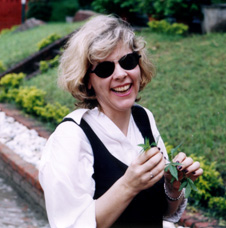Hanklyn Janklyn
 Sometimes life just throws up little gems that get more lustrous as time goes on. In this case a gem called Nigel Hankin. Far too much of him to tell in a single blog (I know, some of them are far too long). But here is a taste and I will add some other pieces in later blogs.
Sometimes life just throws up little gems that get more lustrous as time goes on. In this case a gem called Nigel Hankin. Far too much of him to tell in a single blog (I know, some of them are far too long). But here is a taste and I will add some other pieces in later blogs.Nigel was a young officer who was sent to India to fight the Japanese in the Second World War. The war ended before he saw any action and he has stayed on in India ever since. He served with the Foreign Service for some time but has of course been long retired. If you can land a day with him he will take you for a tour of his Delhi. A most remarkable day off the tourist track but rich in culture and people and places you would not ordinarily see. Above all he takes you to meet the "ordinary" resident. You get some history but above all you get how they live. Here he is at Coronation Park - another story, another blog- on a hot and steamy day, taking a break while we looked around.
 A somewhat precious momento of that day is a (signed) book he wrote called Hanklyn Janklyn (after the older Hobson Jobson) which looks at the origins of words, especially those that have come out of the sub continent. You can find it on Amazon.com. Some teasing samples are as follows (with my abbreviated notes):
A somewhat precious momento of that day is a (signed) book he wrote called Hanklyn Janklyn (after the older Hobson Jobson) which looks at the origins of words, especially those that have come out of the sub continent. You can find it on Amazon.com. Some teasing samples are as follows (with my abbreviated notes):Gu (n): Hindi. Excrement, but since gu is not used in polite Indian company, "shit". In English, "goo".
Yoga (n): Hindi. Interestingly, the English "yoke" is linked to the Sanskrit root word. Self discipline of the mind with the intention of uniting ones soul with the infinite, or the supreme soul. Hence "yoke".
Pant (n): Hindu word for European type trousers
Verandah (n): Indian origins but no one quite knows from where.
Paisley Pattern (n): named after the Scottish town of Paisley that copied a stylised juniper design which had its origins in Kashmir (which the Scots had copied to cut into the Kashmir shawl trade)
Swastika(n) Hindi. A symbol of good omen and prosperity. And yes, adopted by Hitler's Germany.
Jungle(n): Hindi
Widow (n) An Indo-European word linked to the Sanskrit widh/vidh, meaning lacking, bereft, alone. In today's Hindi, a widow is widhwa.
Chit (n) anglicised version of chithi - letter.
You can easily lose yourself for a while in this book. I love it.




















1 comment:
Interesting blog..
Post a Comment